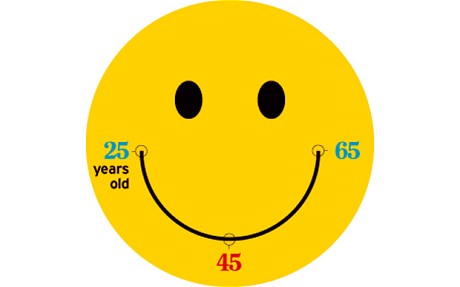I love weddings. Adore ’em. Almost always cry at them, because I’m good like that. I love all the small moments, from how the groom looks as the bride is being walked down the aisle all the way to how it feels when everyone is out there on the dance floor. Weddings are great. Flying to them is sometimes expensive, and renting things for them will periodically make you want to smash your first through a cement wall, but overall they’re great.
One of the only annoying things about weddings is that people in speeches often say this is the “greatest day” of the lives of both people. OK. I get the sentiment. But if you unpack that idea, that really sucks. Basically, you’re saying these two people are peaking at this moment. So everything that comes after — the jobs and the kids and the moments and the vacations and the homes — is all on a down-slope from this moment.
Now, I agree your wedding might be the most memorable day of your life. Yep. I agree it should be one of the greatest days of your life. With you there too. But when people say this at weddings — and I feel like I’ve heard the phrase “This is the greatest day of your life!” at every wedding I’ve ever attended, my own included — they fundamentally show that they don’t understand the notion of happiness.
Firstly, happiness isn’t a destination, per se. You can’t “reach” it. It’s not like an island just off-shore you can swim to. In fact, most of what we know about the idea of “happiness” is actually genetic. You can’t always control genetics. You can control actions.
Secondly, in capitalist societies, we tend to associate happy with money. That’s actually not right. Money does afford you a certain degree of freedom with your time, yes — and that’s great — but there’s no real correlation between “oodles of money” and “happiness” beyond about $76K a year, give or take. My parents and my in-laws both made/make more than that (often by a good deal) in the past 20 years. All four of those people go through long bouts of unhappiness.
Third: very few people can truly balance “being busy” (the go-go-go of daily life) with “being happy.” By some estimates, it’s only 1 in 10.
I read a recent Atlantic cover story, “The Roots of Midlife Crisis,” on a plane on Saturday. It’s good, albeit long, but it talks about the shifting definition of happiness as you go through life. That only makes logical sense to me — you want/need/focus on different things in your 20s, 30s, 40s, 50s, etc. How could the definition of happiness possibly be the same for a 22 year-old and a 52 year-old? They’re in radically different contextual places.
One of the major tenets of the article is this idea of a Happiness U-Curve, seen here:
That can be a little depressing on face — your happiness essentially consistently declines from about 18 to 50, with a little steadying in your 30s, and then it starts going back up. Via this curve, you’re happier in your 80s (God willing) than you were as a college frosh.
This also should make logical sense — as you get older, you get wiser (which some people view as a cornerstone of being happy), and as you get older — you’d hope, at least — you start to worry about small shit less. Plus, you’re probably not working day-to-day, so you have some money (again, you’d hope) and time (again, hope) and perspective (ditto). This can lead to a happier place, contextually, than during the nadir of this curve — which for most people are their “grinding” years (focus on work, kids, family, money, etc.)
Many others have written about this U-Curve, from The Washington Post to The Economist.
The National Bureau of Economic Research has written about it too; in the process, they admit that people aren’t conclusively sure why this U-Curve happens.
I think I understand the why aspect here — I mentioned that a little bit above — but I don’t even think the why is necessarily important. What’s important is that you, as a person, understand that you’re not always supposed to be happy; being content is a better goal (top hyperlink above) and even if you can’t get to that place, don’t focus on happiness. This U-Curve is seen in apes. You know what that means? It’s probably a fairly-ingrained biological concept by this point. You’re not avoiding it.
There will be a nadir — and consider this. The nadir on the graph above? That correlates almost directly with prime working years. You spend 1/3 of your hours at work, give or take, and yet no one really has ever developed a system to establish purpose while you’re there. That can lead to being sad/depressed/unhappy/etc. It’s very hard to establish purpose at work, and the employee-manager relationship makes no sense. Unhappiness can result.
Eventually, though, the nadir will rise again. That’s the important thing to remember.
We often think, and talk, about happiness in broad, vague terms. That’s logical, since it seems like a far-away destination sometimes. But there are ways to think about happiness that puts some context back in the discussion, and that can help you think about how you’re viewing your own relationship to the concept.

